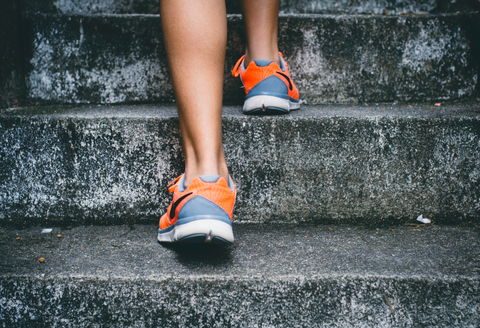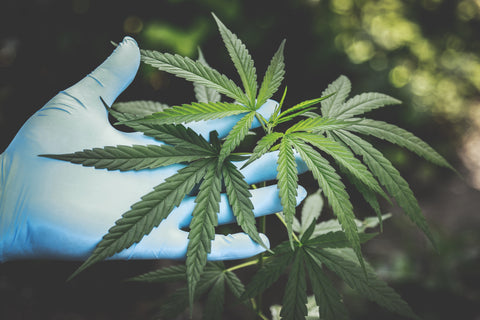Good oral health is easy to take for granted. One can quickly forget about the importance of having healthy teeth and gums until they actually start to present problems.
Suddenly, going about your daily activities can become a greater challenge if your teeth and gums start to cause pain. Eating properly may similarly prove difficult once you start to experience those oral health issues.
Those are not the only reasons why you should value dental health.
If high levels of bacteria start to concentrate in your mouth, you could become more vulnerable to cardiovascular disease, endocarditis, and pneumonia. Pregnant women with poor oral hygiene may also experience complications during birth, according to the Mayo Clinic.
Caring for your oral health helps you remain comfortable and protects you from some potentially serious diseases.
So, how should you go about maintaining ideal dental health?
Visiting the dentist regularly, brushing your teeth properly, and remembering to floss are all obvious tips. What you may not know is that being physically active can also improve your oral health.
Listed below are some of the ways in which being physically active positively impacts the health of one’s teeth and gums.
Regular Exercise Can Lower Your Risk of Developing Gum Disease
Gum disease, which is also known by other names such as periodontal disease and periodontitis, is a common side effect of poor oral hygiene. It can lead to bad breath, painful chewing, and possibly the loss of teeth if its progress is not halted or at least slowed down.
Plaque is the primary culprit behind why most people develop periodontitis. For those who may be unaware, plaque is that sticky substance that ends up covering your teeth if you haven’t brushed for a while.
Of course, plaque is not the only reason people develop this disease. Obesity has also been identified as a risk factor.
Studies suggest that abundance of fat cells can lead to increased inflammation and a weakened immune system – factors that can make an individual more susceptible to gum disease.
Regular exercise will help you keep your weight down and simultaneously lower your chances of developing periodontitis.
Regular Exercise Reduces Inflammation That May Be Affecting Your Gums
Inflammation is one of the main reasons why people develop gum disease. As your gums remain inflamed, more bacteria can squeeze into them and cause problems.
Regular exercise can prove helpful because it can reduce inflammation throughout the body.
According to this study, habitual exercise can decrease the amount of inflammatory cytokines that are capable of causing problems inside your mouth. Furthermore, continually exercising may also lead to the increased production of anti-inflammatory cytokines.
Even if you’ve already developed periodontitis, you can still reduce its overall impact by exercising more frequently.
Regular Exercise Improves the Digestive System and Your Dental Health
Your digestive system is responsible for getting the nutrients out of the food and drinks you consume. If it’s not functioning well, you could encounter or possibly develop some serious health issues.
So, how can you make things easier for your digestive system?
Eating the right food helps. Fiber-rich items are highly recommended and you should also remember to stay hydrated.
Chewing thoroughly will also make digesting food easier for your body.
Don’t forget about the benefits of exercise as well.
Because exercise improves blood flow, boosts metabolism, and just gets your body going in general, it will undoubtedly have a positive impact on your digestion.
Improving your digestion can then help you absorb more of the nutrients that are essential for maintaining the health of your teeth and gums
Regular Exercise Allows You to Maintain Healthy BMI, Teeth, and Gums
This article already touched on the link between obesity and periodontitis, but there’s another reason why being mindful of your weight will also improve oral health.
A study focusing on the relationship between BMI (body mass index) and carious lesions unearthed some interesting findings. The study notes that individuals with a lower BMI had fewer cavity-causing carious lesions. Conversely, those with a higher BMI were found to have more carious lesions.
You can achieve your ideal BMI by taking up a regular regimen of isometric and isotonic exercises. Isometric exercises are useful for weight loss while the isotonic workouts are good for maintaining your best BMI long-term.
Regular Exercise Alleviates Stress and Keeps Teeth Healthy
Grinding teeth is a habit many people turn to whenever they’re feeling stressed out. As you can imagine, the constant grinding can wear down your teeth and leave them significantly damaged.
You can effectively discourage that bad habit by exercising more. Exercising will help free your mind from stress and subsequently get rid of any motivation to grind your teeth.
What to Consume to Improve Oral Health
Before wrapping things up, it’s important to note that exercising alone will not be enough to maintain the ideal condition of your teeth and gums. You also have to eat properly to further improve oral health.
Included below are some of the food and drinks to target if you want better dental health.
Fiber-Rich Foods
This article already recommended eating more fiber-rich foods because they improve the digestive system, but that’s not the only reason to shop for them. According to the University of Rochester Medical Center, fiber-rich foods are also helpful to the teeth and gums because they help stimulate the flow of saliva.
Saliva is immensely beneficial because it keeps the mouth clean and even reintroduces some essential minerals.
Dairy Products
Much like fiber-rich foods, dairy products also benefit you by boosting the production of saliva and bringing important minerals back to your teeth and gums.
Coffee
When thinking of the benefits of caffeine, most people will mention how it boosts energy first and foremost. However, you can get more from your morning cup of coffee than just a jolt of energy.
This study notes that coffee made from roasted beans possesses antibacterial qualities. It’s shown to be particularly aggressive against the strain of bacteria known for causing cavities.
In addition to coffee’s antibacterial capabilities, it can also keep harmful substances off your teeth as it can function as an antiadhesive.
The only real catch is that you can only enjoy those benefits of caffeine if you avoid the variants that come loaded with sweeteners and other additives.
Improving and maintaining oral health involves more than just regular brushing, flossing, and visits to the dentist. You also have to eat properly and exercise more often. Develop all those habits and you can count on your pearly whites staying with you for a long time.




Comments (0)
There are no comments for this article. Be the first one to leave a message!